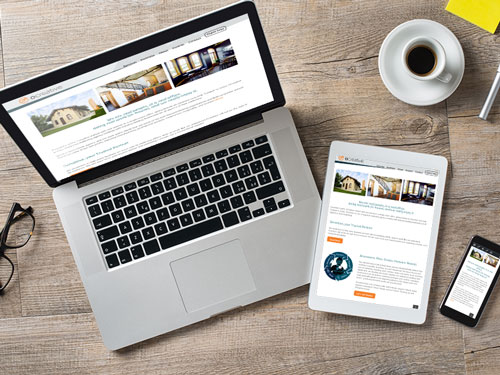In May 2016, Google announced it would give a rank boost in search results to sites that are mobile friendly, which is a change which Google refers to as Mobilegeddon 2. Now Google is back with another update related to the importance of mobile-friendly websites by rolling out mobile-first indexing. In 2015, Google stated that people are performing more searches on mobile devices than on desktop computers and that this number is only increasing. According to Zenith’s new mobile advertising forecasts, seventy-five percent of the global Internet use in 2017 will be conducted on mobile devices. Google recognizes that a majority of its users are on mobile devices; thus, Google is making improvements to reflect this increase.
Last November, Google started creating its search results and rankings based on the mobile versions of websites. Previously, its bots crawled websites and generated search results based on desktop-indexed websites. Now it will primarily crawl and build search results based on mobile-indexed websites. Google will display these same mobile results and rankings for desktop searches.
What if you don’t have a mobile-friendly website? Well, we could talk your ear off about the importance of having a mobile-friendly website (it boosts your SEO ranking, it improves user usability, it’s 2017, etc.), but in terms of mobile-first indexing, you do not have to worry. Google says it will continue to index your desktop site, even in the mobile search results.

That said, if you do have a mobile-friendly site but the content isn’t the same as your desktop version or lacks the depth of the content on your desktop version, then it is important that you update your mobile site to reflect the same content as your desktop site. This is important because your mobile website will now be shown in both mobile and desktop search results.
Why is Google doing this to us? Again, this is a great question! Google noticed that the content of some websites varied from the desktop to mobile version. When a user saw search results on a mobile device, the search results would represent the desktop version of the website; however, the site lacked the information or usability that was reflected in the search results. Thus, users struggled to find what they were looking for.
Tips:
- Make sure your site is responsive or dynamic. This ensures that your content will be the same across desktops, tablets, and mobile devices.
- Log into your Search Console (Webmasters) account, and use the robots.txt tester tool to ensure your mobile site is accessible for crawling by the Googlebots.
- In your Search Console account, look at the Mobile Usability report to ensure that you do not have any problems with your mobile site.
You don’t have your Search Console account set up yet? Don’t worry! We can help you here.
About Ocreative
Ocreative is an award-winning, fully integrated marketing agency whose work features some of the best forward-thinking organizations and B2B companies. Since the integrated marketing agency began in 2003, they’ve carved out a specialization for themselves with nonprofits and business-to-business companies. Their portfolio expertly includes marketing and strategy, design, web and digital and multimedia.





